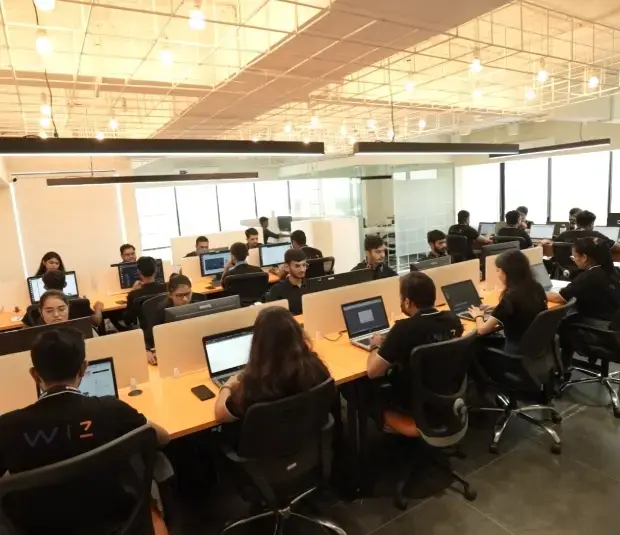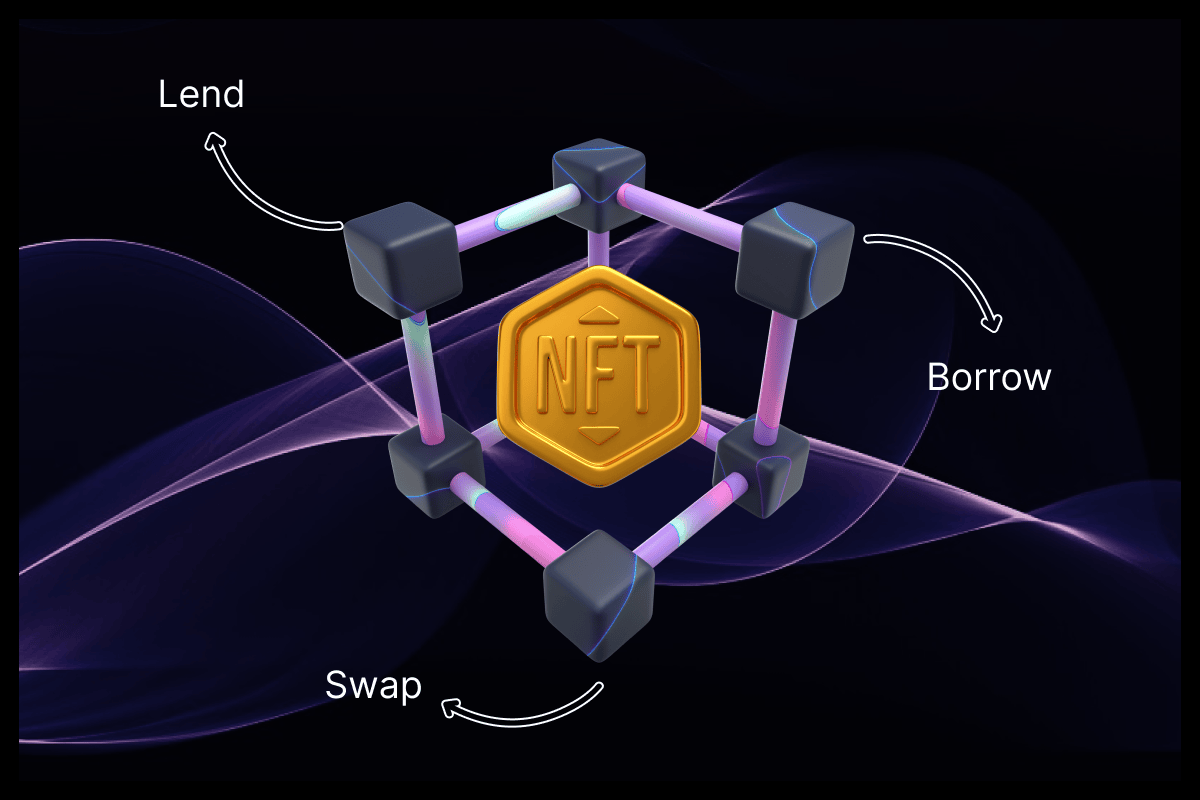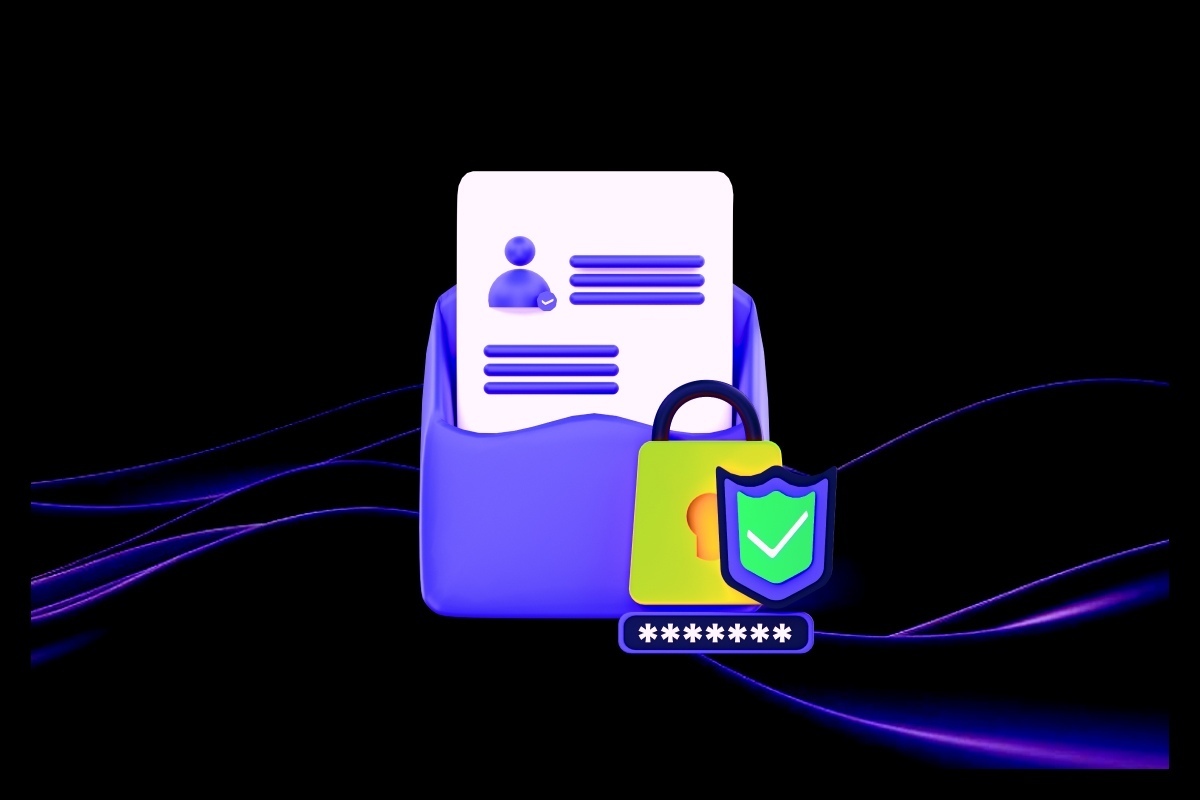SHARE THIS ARTICLE
Beyond Finance: The Positive Impact of Web3 on Education, Healthcare, and More
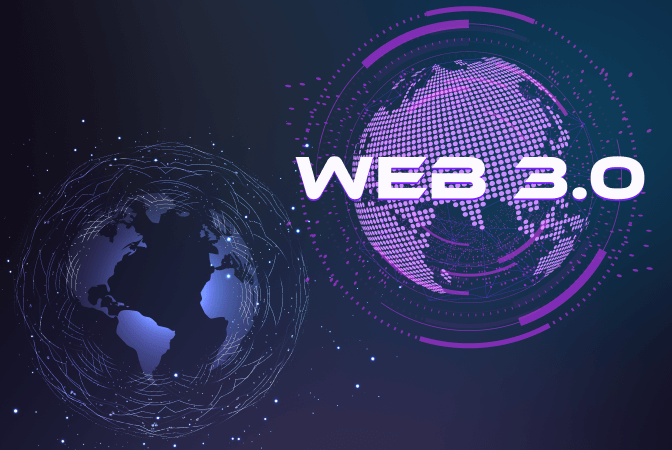
Web3 has taken the tech scene by storm. Headlines scream about cryptocurrencies, NFTs, and the potential for revolutionary financial systems. While these innovations are undoubtedly captivating, they paint an incomplete picture. The true potential of Web3 development services extends far beyond the finance industry. It promises to reshape how we interact with various aspects of our lives.
At its core, Web3 stands for a decentralized internet. This means moving away from a system controlled by a handful of large corporations and towards one where users have more ownership over their data and online experiences. This shift is powered by blockchain technology, a secure and transparent digital ledger that underpins the workings of cryptocurrencies and other Web3 applications.
But what does this mean in practical terms? Web3 provides users with ownership of their data and digital assets. For instance, it allows you to control your educational credentials, manage your medical records securely, or even own a piece of the content you create online. These are just a few glimpses into the exciting possibilities that Web3 presents. This shift towards a more user-centric approach has the potential to revolutionize various sectors beyond just finance, leading to a more transparent, secure, and collaborative future.
Applications of Web3 Beyond Finance
Education
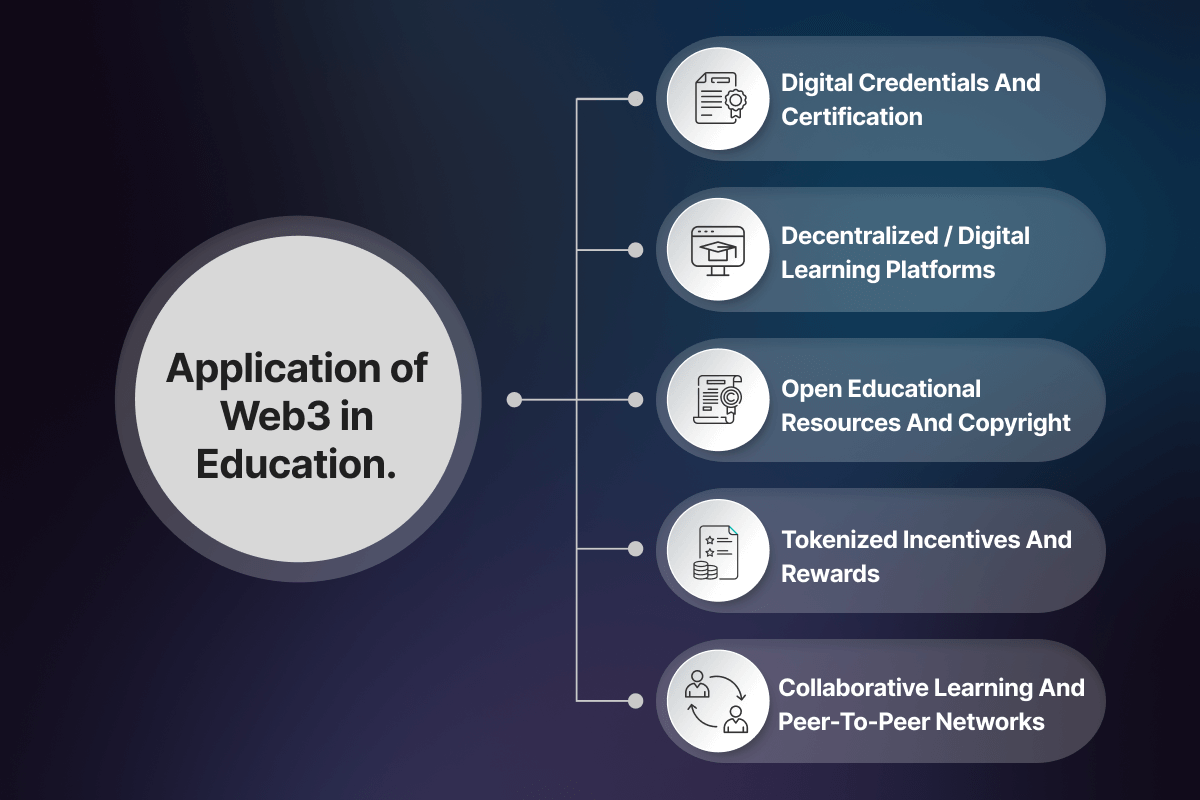
Traditional education systems often struggle with limitations. For instance, geographical barriers or financial constraints can restrict individuals from pursuing educational opportunities. Static curriculums may fail to adapt to the ever-evolving job market and technological advancements. Then there is a lack of personalization, wherein standardized learning approaches might not cater to individual learning styles and needs.
Blockchain technology in education offers innovative solutions to address these challenges.
Decentralized Learning Platforms
Blockchain technology can create secure and accessible platforms for sharing educational resources and credentials. It can facilitate a system where students own their learning records and can transfer them between institutions, eliminating the need for centralized verification authorities. Furthermore, a global library can be created where anyone can contribute and access educational materials, removing geographical barriers and creating a collaborative learning environment.
Tokenized Learning
Web3 introduces the concept of tokens, digital units that can incentivize participation and reward learning achievements. Students can earn tokens for completing courses, active participation in discussions, or even creating educational content. These tokens could then be used to access exclusive resources, pay for micro-learning modules, or even govern aspects of the learning platform through Decentralized Autonomous Organizations (DAOs).
DAOs for Educational Governance
DAOs are essentially online communities with transparent decision-making processes. In education, DAOs can allow both students and educators to participate in shaping the learning experience. For instance, a community-driven approach can be adopted where students and educators collaboratively decide on curriculum development, resource allocation, and platform upgrades. This leads to a more democratic and transparent learning environment.
Technical Tidbits
Blockchain protocols like Ethereum provide the foundation for secure data storage and transaction processing within these platforms. Token standards like ERC-20 define how these tokens function within the ecosystem. Additionally, DAO frameworks facilitate transparent voting mechanisms and community governance.
A Real-World Example
Blockcerts is a prominent example of a Web3 initiative in education. This open-standard system utilizes blockchain technology to issue, store, and verify educational credentials. Universities and institutions can securely share student transcripts and certificates, allowing students to control and manage their learning records. This approach eliminates the risk of forgery and optimizes the process of credential verification for employers or further education opportunities.
Healthcare Management and Research
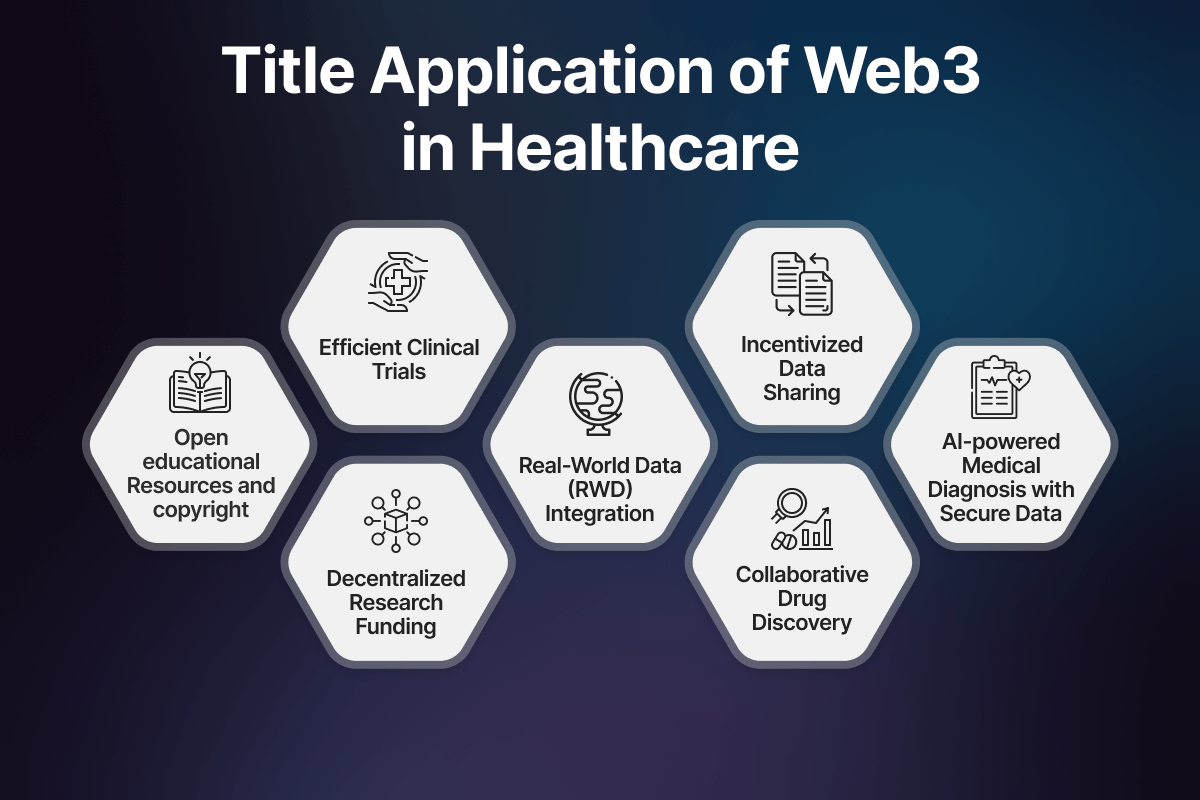
The healthcare industry faces numerous challenges, including inefficient data management. Fragmented healthcare systems often lead to cumbersome data exchange and limited access to medical records. Plus, information sharing between different healthcare providers can be slow and complex due to incompatible systems, leading to a lack of interoperability. Finally, patients often lack control over their medical data, raising concerns about privacy breaches and unauthorized access.
Here’s how blockchain technology in healthcare offers solutions to these issues.
Secure Medical Record Management
Blockchain technology can revolutionize medical record management. By storing patient data on a secure and tamper-proof ledger, Web3 provides individuals with greater control over their information. Patients can choose who can access their records and grant permission to specific healthcare providers for treatment purposes. This transparency and security can significantly improve data privacy and optimize care coordination.
Streamlined Research and Development
Traditionally, medical research often faces hurdles due to data silos and complex collaboration processes. Web3 introduces permissioned blockchains, secure networks accessible only to authorized participants. This facilitates secure data sharing and collaboration between researchers, pharmaceutical companies, and patients, potentially accelerating clinical trials and advancing medical discoveries.
Precision Medicine
Web3 offers personalized medicine by leveraging smart contracts. It can facilitate a system where a patient's data is used to automatically trigger specific treatment protocols based on pre-defined parameters within a smart contract. This approach can lead to more efficient and targeted healthcare interventions.
Technical Details
Blockchain's core strength lies in its decentralized nature and immutability. Data stored on the blockchain cannot be altered or tampered with, ensuring the integrity of medical records. Additionally, healthcare-specific blockchain consortiums like HL7 FHIR are actively developing standards and frameworks to facilitate secure data exchange within the healthcare ecosystem.
Supply Chain Management
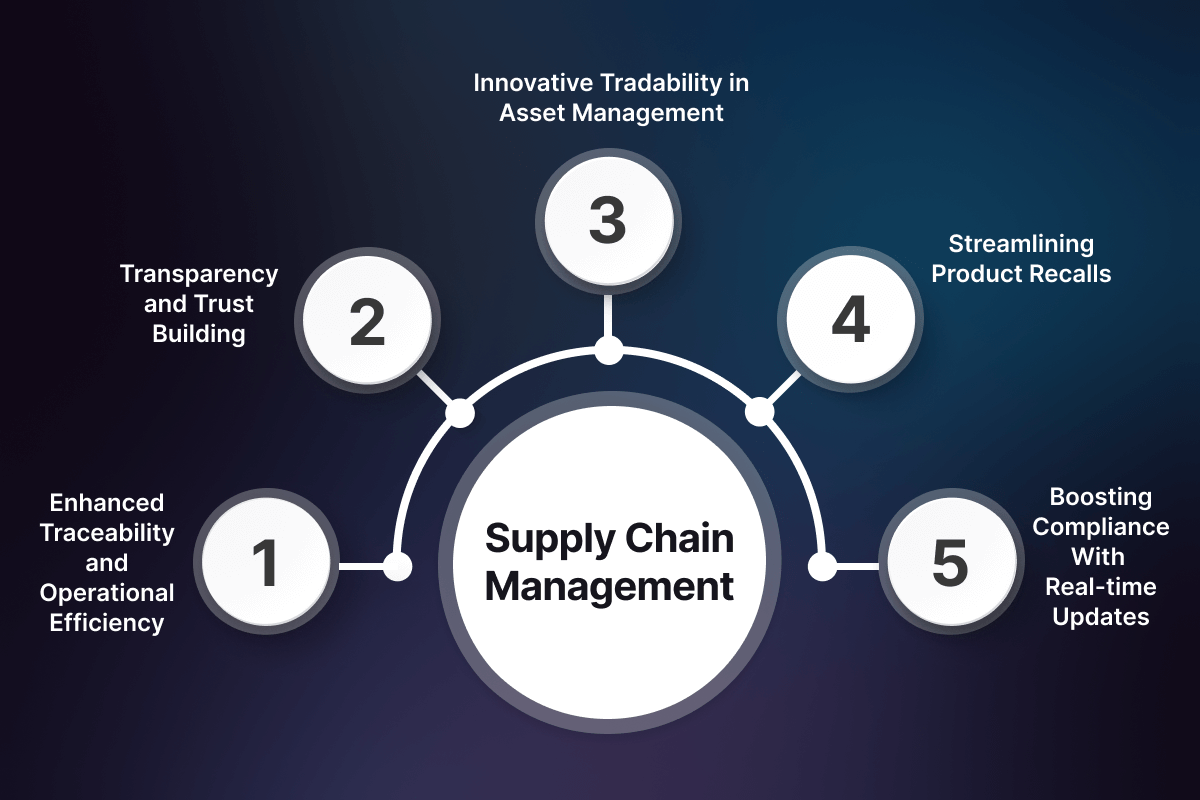
Ever wondered where your favorite coffee beans come from, or if that designer bag you bought is truly authentic? Counterfeiting and a lack of transparency plague our supply chains, making it challenging to confirm the ethical sourcing and quality of the products we consume.
Blockchain technology, a core component of Web3, offers a groundbreaking solution. It acts as an immutable ledger that tracks every step a product takes, from raw materials to your shopping cart.
Enhanced Tracking
Every movement of a product is recorded on the blockchain, creating a verifiable history. This allows consumers to trace the origin of their purchases, ensuring authenticity and ethical sourcing.
Building Trust
Transparency is key. By providing consumers with access to this data, businesses can nurture trust and build brand loyalty. It’s like knowing exactly where your clothes were manufactured or the sustainable practices employed in growing your food – this is how Web3 can transform supply chain management.
Real-World Examples
-
VeChain: This platform utilizes blockchain to track the movement of goods across various industries, ensuring product authenticity and ethical sourcing.
-
Provenance: This platform focuses on providing consumers with insights into the origin and sustainability practices behind the products they purchase.
Web3 has the potential to revolutionize supply chains, offering greater transparency, ethical practices, and ultimately, a more informed consumer experience.
Additional Potential Applications
While the focus has been on specific industries, Web3's potential extends far beyond. Here are some additional areas where this technology is poised to make a significant impact.
Governance
Traditional voting systems can be vulnerable to manipulation and fraud. Web3 offers an intriguing solution: secure and transparent voting systems built on blockchain technology. Imagine a system where every vote is recorded immutably, eliminating the risk of tampering and ensuring the integrity of the democratic process. It can help build a system where every vote is recorded immutably, eliminating the risk of tampering and ensuring the integrity of the democratic process.
Social Media
Currently, social media is dominated by centralized platforms that control user data and content. Web3 offers a glimpse into a more user-centric future.
-
Data Ownership: Decentralized social networks allow users to own and control their data. This shift puts the power back in the hands of individuals, allowing them to decide how their information is used.
-
Monetization Opportunities: Web3 opens doors for creators to directly monetize their content through mechanisms like NFTs (Non-Fungible Tokens). Artists, musicians, and even everyday individuals can earn directly from their work, bypassing the limitations of traditional social media platforms.
Content Creation
The onset of Non-Fungible Tokens (NFTs) has opened up new opportunities for content creators. NFTs are essentially digital certificates of ownership for unique digital assets like artwork, music, or even in-game items. This technology lets creators monetize their work directly and connect with their audience in innovative ways.
These are just a few examples of how Web3 is set to disrupt various industries. As the technology matures, we can expect even more innovative applications to come up, leading to a more decentralized, transparent, and user-centric digital space.
Technical Considerations
Web3 applications are built upon the foundation of blockchain technology. This distributed ledger system allows for secure, transparent, and tamper-proof recording of data. Transactions are verified by a network of computers, eliminating the need for a central authority.
Another key component is smart contracts. These are self-executing agreements written in code. They can automate specific actions within Web3 applications, further reducing the need for intermediaries.
While Web3 holds immense potential, it's crucial to acknowledge that the technology is still under development.
-
Scalability: Current blockchain networks can struggle to handle a large volume of transactions, potentially leading to slow processing times. Developers are actively working on solutions to address these limitations.
-
Security: While blockchain technology is inherently secure, vulnerabilities in specific implementations can still pose risks. Continuous improvement in security protocols is essential.
A Glimpse into the Future of Web3
Despite the ongoing technical considerations, the potential of Web3 to revolutionize various sectors is undeniable.
-
Individuals have greater control over their data. Web3 provides users with ownership and control of their digital assets and personal information.
-
Transparency and trust are central to online interactions. Secure and transparent systems can build trust in areas like governance, supply chain management, and social media.
-
Innovation thrives in a decentralized environment. Web3 opens doors for new business models and fosters a more equitable creator economy.
However, achieving widespread Web3 adoption requires developing clear and effective regulations for the Web3 space. It is essential to ensure responsible innovation and mitigate potential risks.
Web3 presents a transformative approach to the digital world. While technical and regulatory hurdles exist, the potential benefits across various industries are significant. It is possible to overcome these hurdles by collaboration between developers, policymakers, and the broader community. It is undeniable that Web3 can facilitate a more secure, user-centric, and equitable digital space.
Post Author
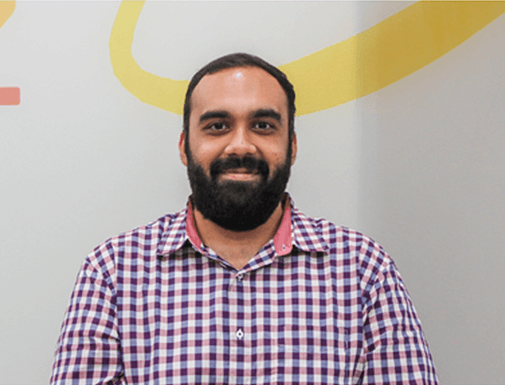
As a distinguished blockchain expert at Codezeros, Paritosh contributes to the company's growth by leveraging his expertise in the field. His forward-thinking mindset and deep industry knowledge position Codezeros at the forefront of blockchain advancements.
Enhance the scalability of your business with Web3 integration
Decentralized internet in the form of Web3 is the inevitable future of technology. Partner with Codezeros to integrate it into your business and stay ahead of the competition.
